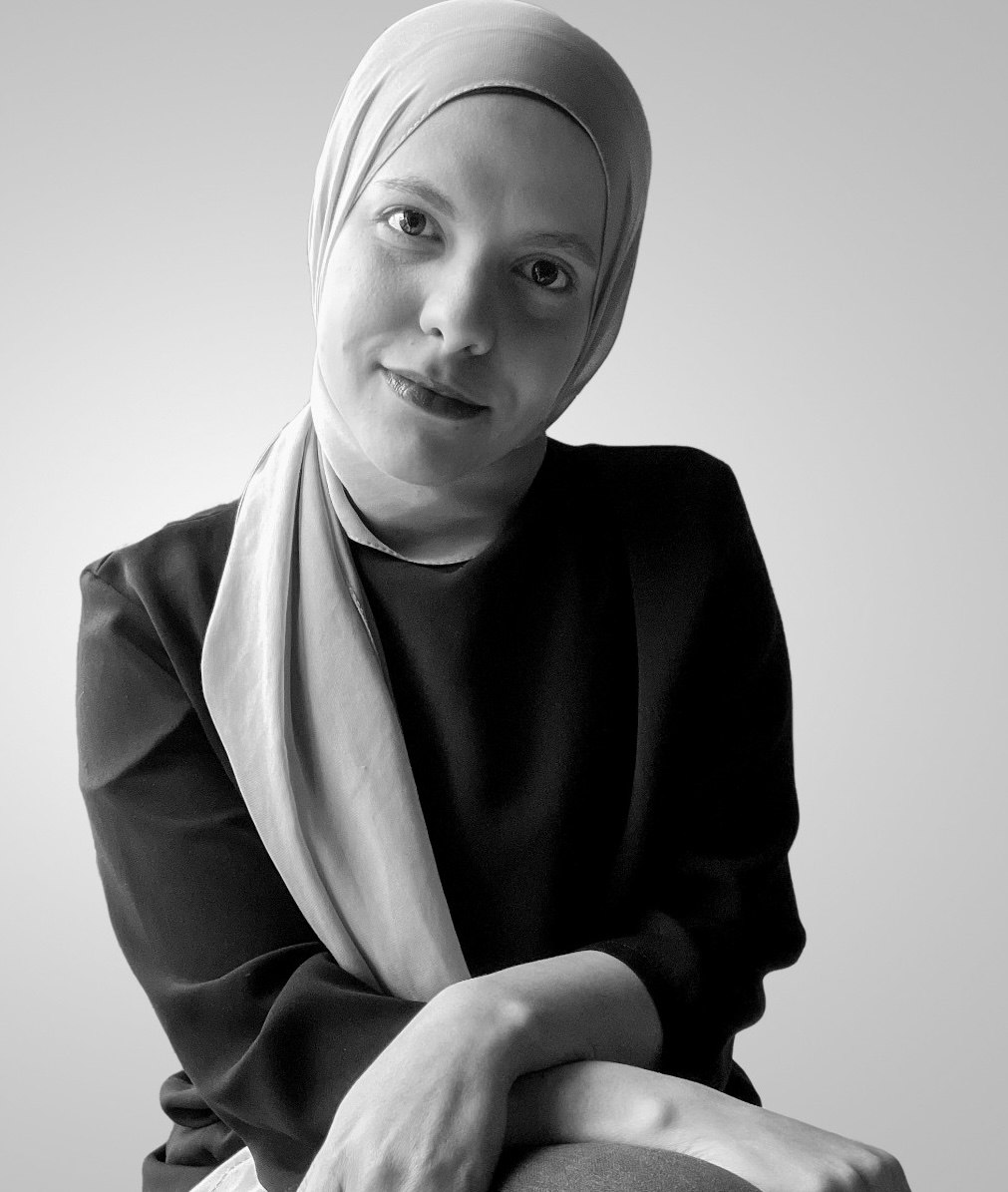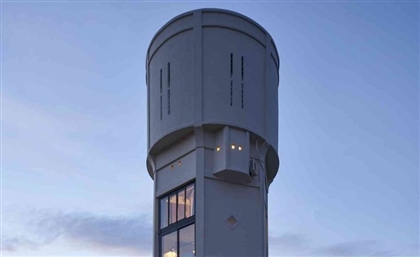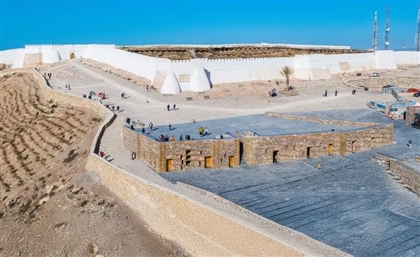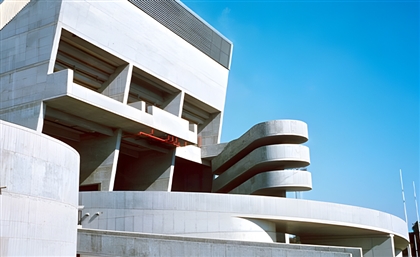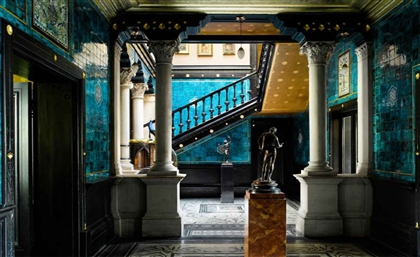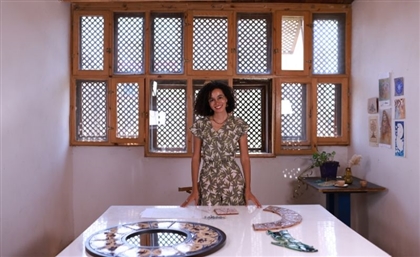The Pergola Theater Brings Back Egypt’s Music Kiosks in Public Parks
Cluster is reviving a once-overlooked public space with a Pergola Theater built from recycled materials, anchoring sustainability, design and community in one structure.
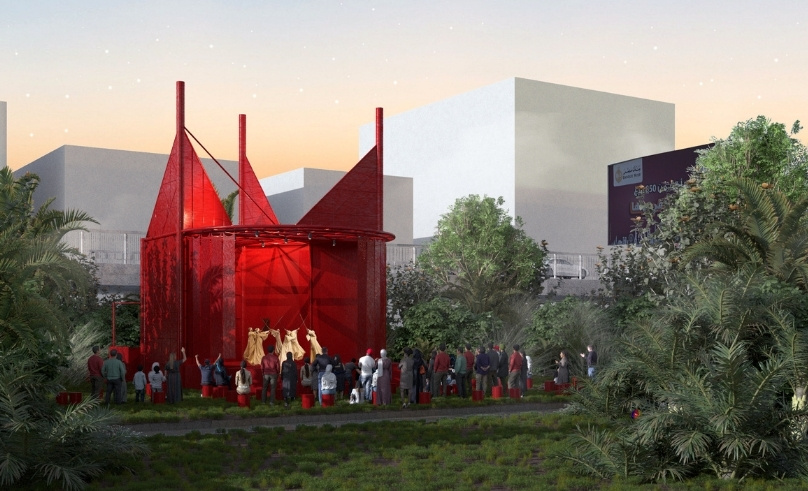
A few years ago, Cluster - aka Cairo Lab for Urban Studies, Training and Environmental Research, an Egyptian platform for urban research and development - turned its attention to Agouza Park, a neglected area under Cairo’s 6th of October Bridge. For the team, it was an opportunity to test how community-driven design could reclaim forgotten land and reintroduce it as public space. This led to Along the Line, a linear project of small-scale interventions aimed at activating the park and encouraging local residents to use it again.
-5fa0c331-e3ad-407b-ab24-cf8bf61509c4.jpg)
The interventions were modest but strategic: a slide, dual-level swings for both adults and children, a foldable library, and a kiosk for puppet shows or small performances. These moments of interaction and play were designed to challenge the dominant narrative of securitised and commercialised parks in Cairo. "Rather than imposing a masterplan, Along the Line was about proposing a set of prototypes that could be replicated, adapted, and scaled elsewhere," Omar Nagaty, founder of Cluster, tells SceneHome.
As an extension of Along the Line, the Pergola Theatre emerged through a design collaboration between Cluster, the London-based studio THISS, and Cairo’s Orient Productions, specialists in cultural events and activation programs. Conceived as a more ambitious structure, the vision was to create a cultural and social anchor for the park. Developed under Anhar: Culture and Climate Platform in partnership with Art Jameel and the British Council, the project adopted a participatory design process, inviting community members to review multiple scenarios and incorporating their feedback into the final outcome.
The Pergola Theatre is a multifunctional piece of urban infrastructure, designed to act beyond being a typical stage; it was designed to host concerts, film screenings, and community events while remaining active in daily life. When no performances are scheduled, its structure doubles as shaded seating. Lightweight swings are planned to be attached to its beams to ensure children still engage with the installation, keeping it alive as part of the neighbourhood fabric. “We saw it as a way to reconnect with Cairo’s own traditions of public culture,” Nagaty adds. “The open-air music kiosk was once an essential part of the city’s gardens, and the Pergola Theatre is reactivating that spirit in a contemporary form.”
As sustainability is integral to the design, Cluster partnered with local environmental initiatives to incorporate recycled materials: VeryNile provided plastic repurposed from the Nile for shading, TileGreen supplied recycled plastic tiles, and Reblox contributed building blocks made from plastic waste. "These collaborations embedded ecological responsibility into the structure, aligning environmental action with public design," Reem Ayman, Architect at Cluster, explains. In the same spirit, Cluster is inviting Cairo residents to contribute by donating red plastic bags, which will be repurposed into shading elements for the Pergola Theatre.
-5a06ab7e-a6cd-4376-afaf-48159e026f03.jpg)
The Pergola Theatre visually asserts itself against the noise of its surroundings. As the park is dominated by billboards and the heavy presence of the bridge, the theatre was designed to stand out as a clear, contemporary intervention, distinct enough to claim attention without overwhelming the space.
For Cluster, the project continues more than a decade of experimenting with Cairo’s public realm, from Downtown alleyways to neighbourhood-scale initiatives, offering a model of how overlooked corners of the city can be reactivated through community-driven design.
Trending This Month
-
Jan 31, 2026



